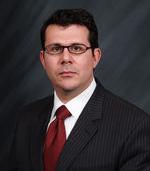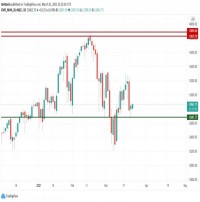|

James Koutoulas
The National Futures Association (NFA), the independent regulatory organization policing certain segments of the derivatives industry, is having an election from mid-December until January 15, 2012. NFA elections are seldom contested. However, last year in the CTA/CPO category Ernest Jaffarian of Efficient Capital and Douglas Bry successfully challenged nominated candidates. This year the two Commodity Customer Coalition cofounders entered the CTA/CPO fray. James Koutoulas, principal at Typhon Capital Management and co-founder of the Commodity Customer Collation, and John Roe, Principal at BTR trading, petitioned to be on the ballot against George Crapple of the Millburn Ridgefield Corporation and Thomas Lloyd of Campbell & Company. Profiled in this issue is James Koutoulas. Mark Melin (MM): James, tell me about your business background and your experience in the industry relative to your election to the NFA Board of Directors. James Koutoulas (JK): Sure. I've been trading for about 16 years, but I'm a fairly young guy. I'm very proficient with technology. I also know 13 programming languages. I'm a trained securities lawyer from Northwestern. I've built several hedge funds…and you may have heard a little about the MF Global and PFG litigations that I've been involved with, and I think that, that broad set of skills and industry experience is what lets me understand every facet of the futures business. I try and stay in the trenches fighting for the little guys who got screwed over by both MF Global and PFG. I think I've done a lot to help them and I don't think that the initial distribution for MF Global victims only six weeks after that bankruptcy would have happened without the CCC. The Trustee's initial plan was a 60% distribution nine months later, but to get a distribution in just six weeks was just a massive victory for customers and for the industry as a whole. "What is needed is criminals need to be afraid to cross you. If I'm on that NFA Board, I'm pretty sure criminals will be afraid to go up against me in court after all I've done in MF Global and to a lesser extent in PFG." If I am elected to the NFA Board, I plan on taking the exact same type of aggressive pro-customer, pro-customer protection and I think that I can really help to prevent stuff like this from happening again. I think that adding more rules and regs doesn't really accomplish much at all in terms of protection. What is needed is criminals need to be afraid to cross you. If I'm on that NFA Board, I'm pretty sure criminals will be afraid to go up against me in court as after all I've done in MF Global and to a lesser extent in PFG. MM: Great. Thank you. What do you see as the significant industry issues and how is this relevant to your election to the NFA Board? JK: Well, I think the biggest industry issue we need to address is deterrents. I think regulators are working with small budgets but they also have pretty cozy relationships with Wall Street, especially the big names. And when you see just some unabashed rule breaking out there and nothing or very little done (in terms of enforcement by regulators), it just encourages that behavior and I think that I can do a lot of things to help stop that. One of them would be seeing a proportionate treatment of big firms against small firms for violations. Like right now, if a small firm gets directed to a Business Conduct Committee, they're going to find they're pretty much out of business. Whereas, if you look at someone like JPMorgan where they failed to segregate customer funds properly ahead of MF Global, but they received only a $300,000 fine. If they get a $300,000 fine, it doesn't mean anything to them except a cost of doing normal business. "I want the big guy affected just as much by a violation that currently just hurts the small guy." Those amounts of money are not significant enough to deter big firms from breaking the rules. I would want the big guy affected just as much by a violation that currently just hurts the small guy. Also, the number one thing on our agenda is getting a lifetime NFA ban for Jon Corzine. The NFA has mechanisms in place to do that already. It completely blows my mind why that a ban hasn't happened yet. If you look at the CCC website on commoditycustomercoalition.org, we have a detailed write-up of the MFG case and we'd advocate very, very strongly for that to happen. Also, we would advocate change to one of the arbitration procedures. We want to consolidate arbitration, and in a case like MF Global where you have thousands of victims from the same fraudulent activity, that's very important. Currently each individual has to file separately and that mechanism is very expensive and each individual client has to pay filing fees of between $5,000 and $7,000. Those filing fees would go to NFA. We've requested that the fees be consolidated and they won't do it. And, you know, I don't see the point of that. I think in the case like MF Global, if you could do an NFA Arbitration "class action style" that would greatly speed the recoveries. NFA Arbitration takes roughly a year to complete, whereas a class action lawsuit takes five. "It's a year out from MF Global and Corzine still walks free, none of his bank account have been frozen, his passport hasn't been frozen and then who knows how much money he's shuttled offshore." I think that if we make it so that it is a consolidated arbitration with one filing, it would greatly help processing in the future and again could be used as a deterrent. We see a culture here where large banks can perpetrate fraud and then they just sit on the sidelines for years. It's a year out from MF Global and Corzine still walks free, none of his bank account have been frozen, his passport hasn't been frozen and then who knows how much money he's shuttled offshore. And, it's a lot tougher to find all that stuff and claw it back than it is to just freeze those assets to begin with. I think those affected by MF Global are actually going to win a class action lawsuit, but in five years, how much of that money could he shuttle away or spend or hide? A one year arbitration would help. If the NFA would have let us file a consolidated one year ago, things may be different. MM: How you have found working with the NFA through your role at CCC, and what do you think of their new system for analyzing FCM data? JK: I think the NFA has done a really good job being transparent and cooperative with us. The new online system is a great start, but some work needs to be done to publicize it and giving people easy access to it from the NFA home page. It needs some a little more polish for the numbers to really make sense to the average commodity customer, too. The raw data is there, but the user friendly calculations are not there. For example, I would love to see just a simple percentage of assets compared to total customer assets in the bank account. It is an incredibly valuable data point. I don't know why it's not on there. But, I think that it is pretty easy to finish and it would be a pretty good start and it would be genuinely useful for customers. MM: That's interesting. So, you touched on the third question which was what positions do you advocate? The last question is: should the NFA be an activist organization or a passive organization? "...the rest of the (NFA) Board hasn't done anything, they've been quiet, they haven't pushed for a lifetime ban against Corzine, and they haven't pushed for a class arbitration fight for MF Global victims." JK: It absolutely should be an activist. With the exception of Dan Roth, and Doug Bry and Ernest Jaffarian, who were voted on the Board last year, because they've done a really great job working with the CCC behind the scenes like those four guys have really done a lot of work with us looking hard at MF Global and trying to help. Dan Roth, Ernest Jaffarian, Doug Bry, those guys have been great. They've worked with the CCC and they've done a lot of closed door meetings, and given real thoughtful feedback into upgrading customer protection and also at least helping us out from the sidelines in the MF Global litigation. But the rest of the Board hasn't done anything, they've been quiet, they haven't pushed for a lifetime ban against Corzine, and they haven't pushed for a class arbitration fight for MF Global victims. I think the NFA has a lot of intelligent people working there. I think they've got a lot of really smart auditors contrary to what you'll read in the press, but I think that the culture of the organization needs to be changed, and they need to go out and proactively protect people. And again, I think the best way to do that is deterrent based. It doesn't do much to up investor confidence and I think if John and I are on this Board, the wrongdoers will really be truly afraid of breaking the law. MM: Great interview James. Thank you very much. |
|
This article was published in Opalesque Futures Intelligence.
|





 RSS
RSS











